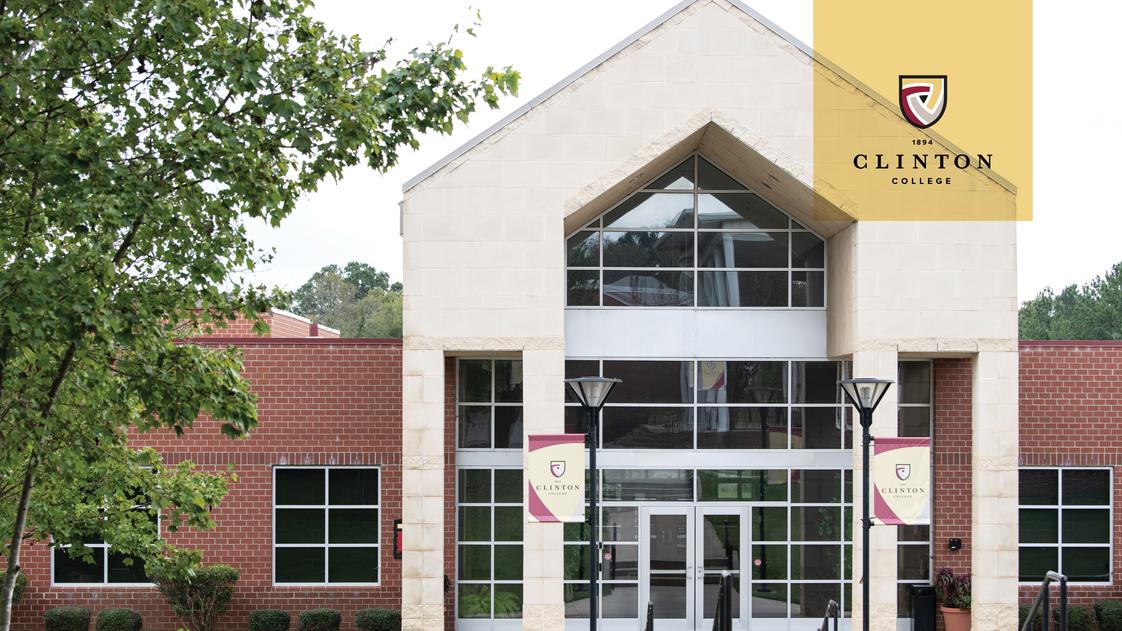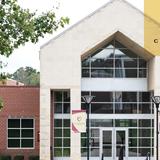- Clinton College is a historically black, private institution founded in 1894 by the African Methodist Episcopal Zion Church. Today, the doors of the institution are open to all, those who have achieved academically and those who have yet to reach their full potential. The mission of Clinton College is to create a holistic environment that cultivates an inclusive community of students, faculty, staff, and administrators who are prepared to excel in academic achievement; experience moral and spiritual growth; demonstrate positive and effective leadership skills as lifetime citizens in a global society. For more information about Clinton College please visit www.clintoncollege.edu.
School Highlights
Clinton College serves 215 students (98% of students are full-time).
Minority enrollment is 98% of the student body (majority Black), which is more than the state average of 48%.
Quick Facts (2026)
- Enrollment: 215 students
- Private-state tuition: $10,416
- Acceptance Rate: 100%
- Minority enrollment: 98%
- Source: Verified school update
Top Rankings
Clinton College ranks among the top 20% of public schools in South Carolina for:
Category
Attribute
School Resources
School Overview
Clinton College
(SC) Community College Avg.
Carnegie Classification
Baccalaureate/Associate's Colleges: Mixed Baccalaureate/Associate's
Associate's Colleges: High Vocational & Technical-High Traditional
Institution Level
Four or more years
At least 2 but less than 4 years
Institution Control
Private not-for-profit
Public
Total Faculty
n/a
177 staff
Number of Programs Offered
9
7
School Calendar
Student Body
The student population of Clinton College has grown by 80% over five years.
The Clinton College diversity score of 0.20 is less than the state average of 0.63. The school's diversity has declined by 69% over five years.
Total Enrollment
215 students
1,971 students
Student-Teacher Ratio
n/a
18:1
# Full-Time Students
210 students
622 students
# Part-Time Students
5 students
1,349 students
# Enrollment Undergraduate
215 students
279 students
# Full-Time Undergraduate Students
210 students
605 students
# Full-Time Graduate Students
n/a
8 students
# Part-Time Undergraduate Students
5 students
1,965 students
# Part-Time Graduate Students
n/a
32 students
Total Dormitory Capacity
146 students
260 students
% American Indian/Alaskan
n/a
n/a
% Asian
n/a
2%
% Hispanic
n/a
9%
% Black
89%
29%
% White
2%
52%
% Two or more races
7%
4%
% Unknown races
1%
4%
Diversity Score
0.20
0.63
College Completion Rate (Students who graduate in less than 4 years)
53%
14%
College Completion Rate (Students who graduate in 4 years or more than 4 years)
12%
17%
Average Graduate Earnings (10 Years)
$17,700
$28,800
Tuition and Acceptance Rate
The private state tuition of $10,416 is less than the state average of $11,532. The private state tuition has stayed relatively flat over four years.
Private State Tuition Fees
$10,416
$11,532
% Students Receiving Some Financial Aid
100%
93%
Median Debt for Graduates
$24,637
$11,729
Median Debt for Dropouts
$9,500
$5,500
Acceptance Rate
100%
88%
SAT Reading
n/a
430
SAT Math
n/a
458
SAT Writing
n/a
413
ACT Composite
n/a
18
ACT English
n/a
17
ACT Math
n/a
18
ACT Writing
n/a
6
Sports
Total Sports Offered
3 sports
Sports
BasketballCheering
Volleyball
Source: 2024 (or latest year available) Integrated Postsecondary Education Data System (IPEDS)
School Notes
- Clinton College currently offers two-year and four-year degrees along with certificates.
- Majors
- Majors offered for the Associate of Arts Degree:
- Liberal Arts
- Early Childhood Development
- Religious Studies
- Majors offered for the Associate of ScienceDegree:
- Natural Sciences
- Business Administration
- Majors offered for the Bachelor of Arts Degree:
- Religious Studies
- Majors offered for the Bachelor of Science Degree:
- Biology
- Healthcare Administration
- Nursing
- Minors
- Division of Science and Technology:
- Public Health
- Exercise Science
- Forensic Science
- Division of Business and Leadership:
- Sports Management
- Accounting Information Systems
- Division of Religious and Ministry Studies:
- Literature
- Black Sacred Music and Worship
- Certificates
- HumanResourceManagement
- Pastoral Leadership and Development
- Banking and Finance
- Healthcare Management
- Entrepreneurship
- Urban and Economic Development
- Educational Ministry
- Ministry Studies
Frequently Asked Questions
How much does Clinton College cost?
Clinton College's private state tuition is approximately $10,416.
What schools are Clinton College often compared to?
Clinton Collegeis often viewed alongside schools like York Technical College by visitors of our site.
What is the acceptance rate of Clinton College?
The acceptance rate of Clinton College is 100%, which is higher than the state average of 88%.
What sports does Clinton College offer?
Clinton College offers 3 interscholastic sports: Basketball, Cheering and Volleyball.
What is Clinton College's ranking?
Clinton College ranks among the top 20% of community college in South Carolina for: Average community college minority breakdown and Percent of students receiving financial aid.
Recent Articles

How to Transfer to a Four-Year University Without Losing Credits
Learn how to transfer to a four-year university without losing credits in 2026, including agreements, planning tips, and expert guidance.

First-Generation Student Guide to Community College Success
A first-generation student guide to navigating your first semester at community college, with academic, financial, and campus life strategies.

Most In-Demand Community College Majors for 2025–26
Explore the most in-demand community college majors for 2025–26 workforce needs, aligned with hiring trends, wages, and transfer pathways.









